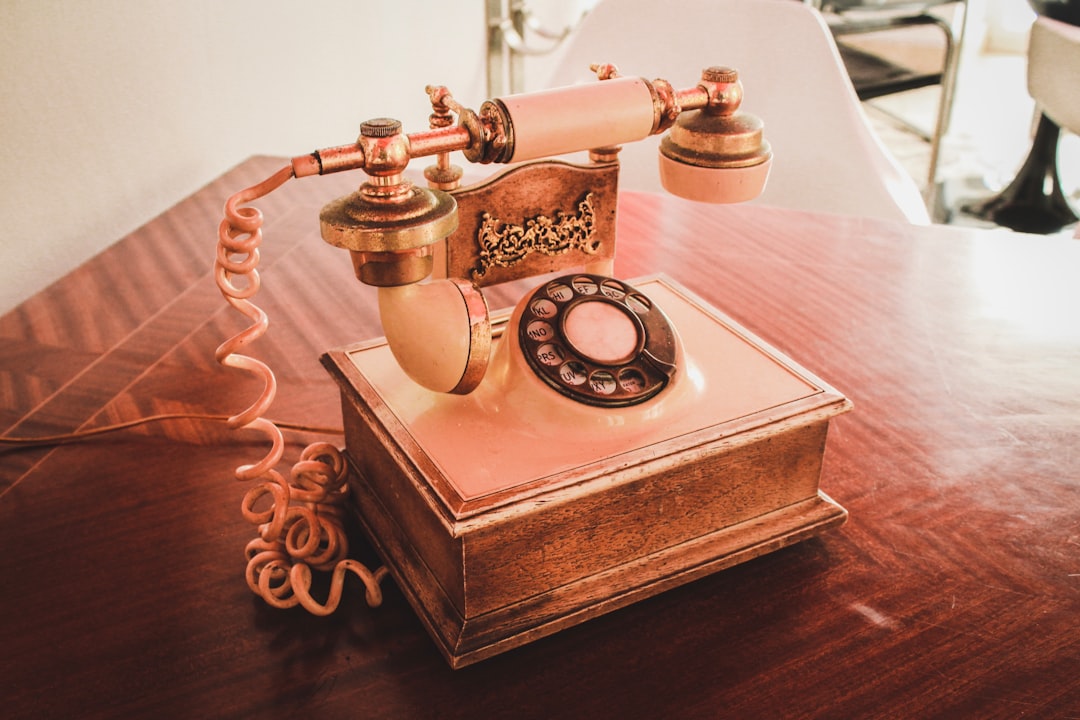Iowa residents are deluged with illegal robocalls, causing widespread frustration and an increase in complaints. In response, many Iowans are turning to specialized 'do not call' lawyers and law firms for help. These professionals assist citizens in registering on state and national lists, providing relief from unwanted telemarketing calls impersonating local authorities or businesses. The high number of fraudulent calls—nearly 50%—and their disruptive effects, particularly on vulnerable populations like the elderly, underscore the urgent need for protection under Iowa law. Iowans are seeking legal recourse to hold robocallers accountable and obtain compensation for the distress caused.
In recent years, the ubiquitous rise of illegal robocalls has plagued Iowans, with disturbing statistics indicating a significant increase in unwanted calls. The constant barrage from telemarketers and scammers not only disrupts daily life but also carries severe consequences. This article delves into the growing issue of robocalls in Iowa, exploring their impact and types, while also highlighting the proactive response from Ames city officials and the legal options available to victims through the Do Not Call registry and legal action with the help of a Do not call lawyer Iowa.
The Growing Issue of Robocalls in Iowa

In recent years, the state of Iowa has witnessed a significant surge in illegal robocalls, causing widespread frustration among residents. These automated phone calls, often promoting dubious services or products, have become an increasingly persistent nuisance for Iowans. Many recipients report receiving multiple calls daily from unknown numbers, some even impersonating local law enforcement or legitimate businesses. This growing issue has prompted a need for action to protect citizens from these intrusive and often deceptive practices.
The influx of robocalls has led many Iowans to seek legal recourse, which has resulted in an increase in complaints filed with the Iowa Attorney General’s Office. In response to this rising concern, there is a growing demand for ‘Do not call’ lawyer services in Iowa. Residents are taking proactive measures to stop these unwanted calls by contacting law firms specializing in do-not-call legal services. These professionals help Iowans register their numbers on state and national ‘do not call’ lists, offering a much-needed respite from the deluge of automated telemarketing calls.
– Statistics and impact on Iowans

In recent years, the proliferation of illegal robocalls has significantly impacted Iowans, leading to a surge in complaints. According to the Federal Communications Commission (FCC), robocalls account for nearly 50% of all calls received by Iowans, with many being fraudulent or unwanted. This deluge of calls not only disrupts daily life but also poses significant financial risks, as Iowans fall victim to scams and identity theft attempts.
The impact is particularly severe on vulnerable populations, including the elderly and those with limited access to information. With the rise in “do not call” registrations and the implementation of various consumer protection laws, such as the Telephone Consumer Protection Act (TCPA), many Iowans are seeking legal recourse. Many turn to lawyer services specializing in do not call violations, seeking compensation for their distress and ensuring that robocallers are held accountable for their actions under Iowa law.
– Types of illegal robocalls and their consequences

Illegal robocalls have become a persistent problem, with various types targeting consumers in Iowa. These automated calls often violate do-not-call lists and regulations, leading to significant consequences for both individuals and businesses. One common type is the deceptive call, where scammers pose as legal professionals or government agencies, urging recipients to take immediate action, such as pressing a number to stop calls—a tactic known as “scareware.” Another prevalent category includes unsolicited marketing calls, which often promote low-interest loans, credit cards, or investment opportunities.
The impact of these illegal robocalls is substantial. Many Iowans have reported feeling harassed and disturbed by frequent calls, leading to increased stress and a loss of personal time. Moreover, some callers use aggressive tactics, making it difficult for individuals to exercise their right to opt-out. For businesses, the consequences can be severe, with potential fines and damage to reputation if they are found aiding or enabling such practices. As a result, many residents are seeking legal counsel from Do not call lawyers Iowa, Do not call attorneys Iowa, and Do not call law firms Iowa to understand their rights and take appropriate action against these intruders.






